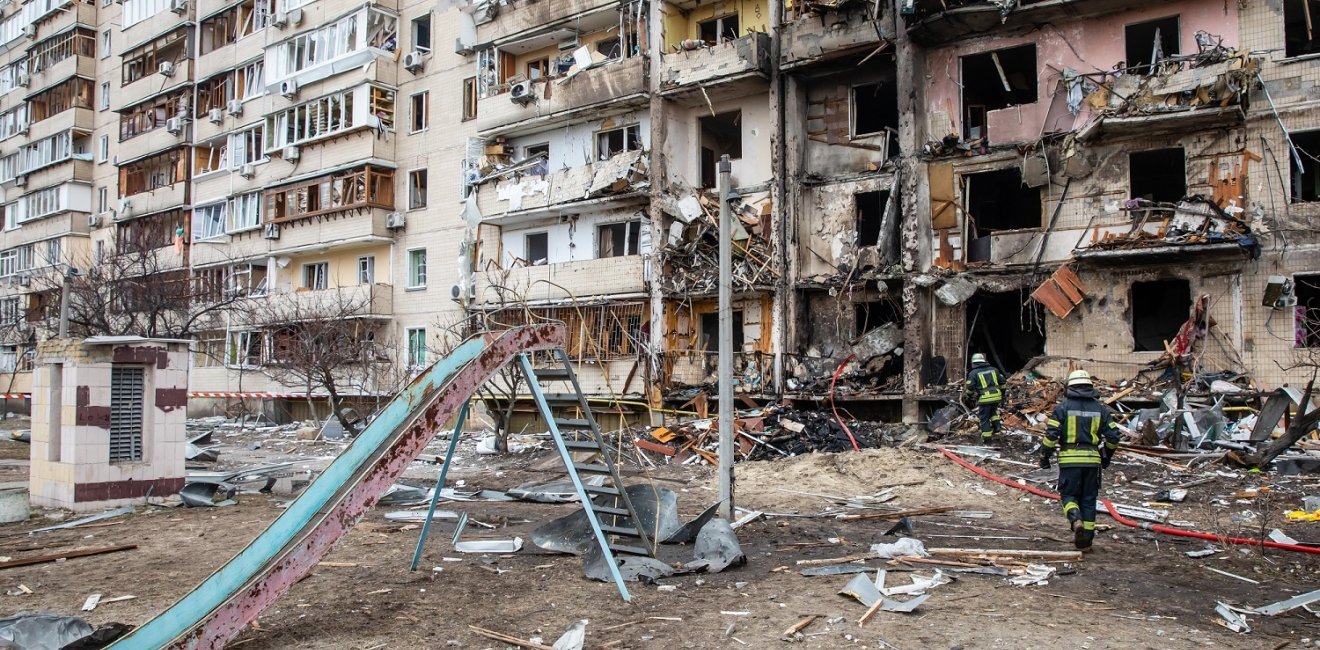
A blog of the Kennan Institute
BY ILIYA KUSA
Russia’s ongoing invasion of Ukraine will have fundamental consequences for regional and world security order. Both Moscow’s logic and the war’s impact can be understood on several levels.
For the last fifteen years, Russia’s foreign policy has been aimed at positioning Moscow as an alternative center of power in the great power competition of the twenty-first century. In the Kremlin’s view, the post-Cold War world order and regional order were not just and balanced because they didn’t manage to accommodate Russian security and economic interests. Therefore, since the mid-2000s Russia has tried to convince the West to treat it as an equal security partner, which would essentially allow Moscow to carve out its own sphere of influence or have a buffer zone.
This was at the heart of the Kremlin’s logic behind its key decisions, starting with the war with Georgia in 2008 and moving on to the annexation of Crimea in 2014, the 2015 intervention in Syria, and the deployment of mercenaries to Central Africa in 2021. The decisions first to recognize the separatist “republics” in Ukraine’s eastern regions on February 21, 2022, and then to invade Ukraine three days later were also part of this logic, although purely confrontational in nature.
By invading Ukraine, however, Vladimir Putin and his military hawks made a strategic blunder. The decision to invade Ukraine was perceived by many analysts and experts as unlikely because it was the simplest and clumsiest choice out of several possible options and the one least aligned with Russia’s rational foreign policy interests. The invasion consolidated Ukrainians regardless of their political and ideological views, strengthened anti-Russian sentiment, and facilitated the Euro-Atlantic integration of Ukraine. In other words, Moscow is poised to get the very opposite of what it wanted, a situation it had attempted to thwart by all means possible.
On a regional level, the decision by Russia to invade Ukraine accelerated the collapse of both the post-Soviet order and the post-Cold War European security architecture.
Russia didn’t get much support from other former Soviet republics except Belarus, which became critically dependent on Moscow after the 2020 postelectoral political crisis. In his speech explaining why he is going for the escalation, Putin called Ukraine an artificial state and questioned the existence of a dozen other countries, formerly part of the Soviet Union. Invasion thus represents the last attempt by Russia to create its preferred political reality on the ground by using blunt military force. Namely, Russia decided to shape its geopolitical periphery in a way that most suits it, essentially carving out an exclusive sphere of influence near its borders.
This is a potentially dangerous sign for the other former Soviet republics as Moscow’s justification for invasion and war (“de-Nazification,” demilitarization, neutrality) effectively denies other states their basic sovereign rights. As a result, many countries, including Kazakhstan and Belarus, could ultimately find themselves opposed to the Kremlin’s revanchist neoconservative worldview. This could contribute to a definite end to the Russia-led post-Soviet integration projects.
The invasion of Ukraine is a test for the European security system, which for many years was seen as outdated owing to escalating tensions inside the Western bloc and the rise of new regional powers, including Turkey under Erdoğan and the Russian Federation under Putin. This changed the regional balance of power, which had largely rested on the post-Cold War triumph of Western democracies, led by the United States. Russia’s attack on Ukraine in 2014 dealt a huge blow to the Euro-Atlantic security architecture. The 2022 invasion is meant to be a nail in its coffin. Regardless of the results of the war, the regional system will never be the same. Ukraine is lost to Russia and either will be rolled into Euro-Atlantic institutions or will forever remain a “gray zone” between a toxic and aggressive Russia and a reinforced West.
Vladimir Putin is in a hurry. He needs to strengthen his negotiating hand as quickly as possible by capturing territories, encircling Ukrainian troops in the big cities, and blockading Kyiv. There is not much time left. In a week or two Russians will begin to realize the magnitude of the Western economic sanctions and financial restrictions. Russian business and political elites will start questioning Putin’s leadership, especially if he fails to convince them to sacrifice their wealth for the “renationalization of elites.” The longer the war drags on, the harder it will become for the Russian army to move through Ukraine, forcing Moscow to pour more resources into the war and commit more troops on the ground, ultimately raising the cost of the war for the Kremlin.
The situation looks like a strategic deadlock for Russia. There appears to be no face-saving option for Putin. The more the confrontation with the West escalates, the more the war in Ukraine intensifies. At the same time, it becomes harder for Russians to fight in Ukraine, prompting Putin either to step back, which he is unlikely to do, or to send more troops into Ukraine.
The opinions expressed in this article are those solely of the authors and do not reflect the views of the Kennan Institute.
Author


Kennan Institute
After more than 50 years as a vital part of the Wilson Center legacy, the Kennan Institute has become an independent think tank. You can find the current website for the Kennan Institute at kennaninstitute.org. Please look for future announcements about partnership activities between the Wilson Center and the Kennan Institute at Wilson Center Press Room. The Kennan Institute is the premier US center for advanced research on Eurasia and the oldest and largest regional program at the Woodrow Wilson International Center for Scholars. The Kennan Institute is committed to improving American understanding of Russia, Ukraine, Central Asia, the South Caucasus, and the surrounding region through research and exchange. Read more

Explore More in Focus Ukraine
Browse Focus Ukraine
Talking to the Dead to Heal the Living

Ukrainian Issue in Polish Elections


